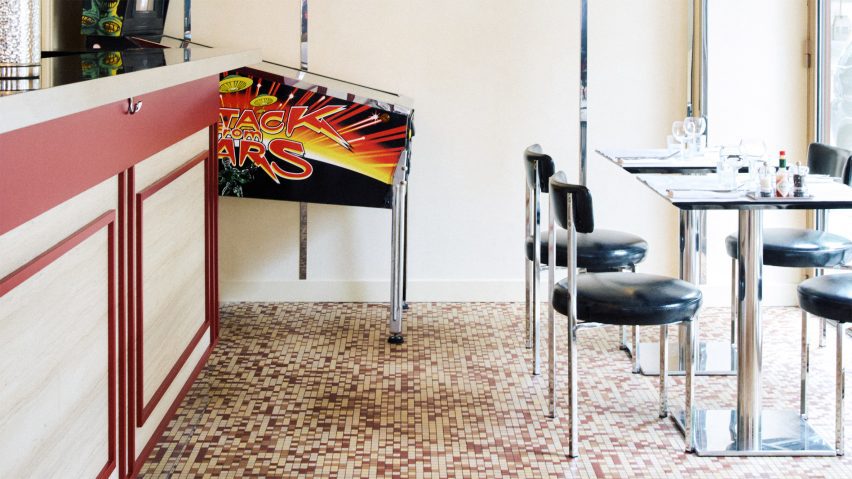
Claves evokes classic Parisian bistro interiors at cafe Le Cornichon
French design studio Claves has transformed the interior of a Paris cafe, introducing bespoke retro-style decor that mirrors the architecture of local bars and tobacconists from the 1930s to the present day.
Claves founders Laure Gravier and Soizic Fougeront were assigned to craft a space fuelled by nostalgia and French tradition for the reopening of Le Cornichon, a contemporary neighbourhood cafe, bar and restaurant owned by Bertrand Chauveau and Paul Henri.
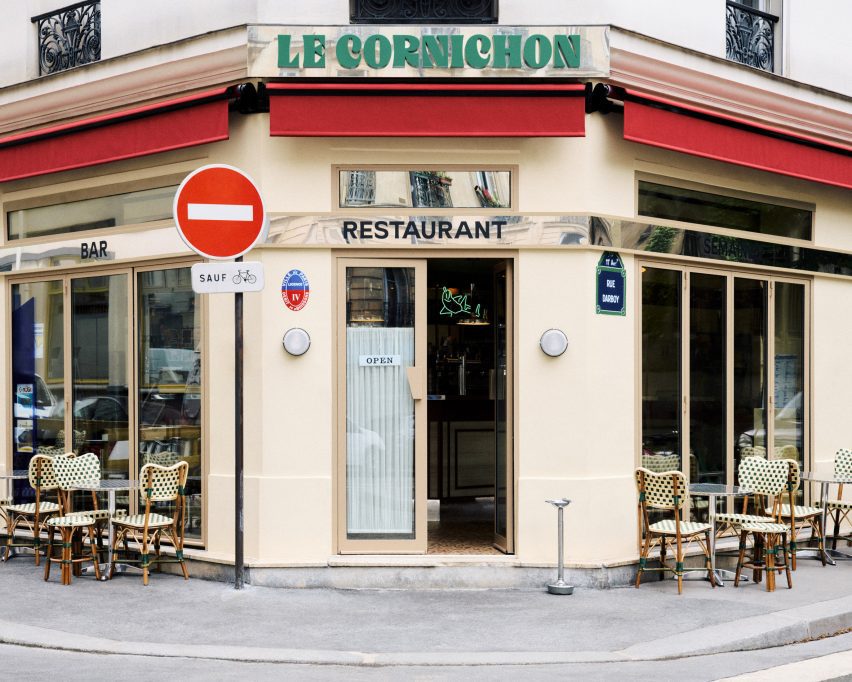
"As the owners' aim was to create a place where people from all backgrounds could come and go from morning to night, every day of the week, the decor had to lend itself to all kinds of scenes", the design studio told Dezeen.
"The morning coffee while reading the paper, the business lunch, the aperitif with friends, the romantic dinner, the evening out."
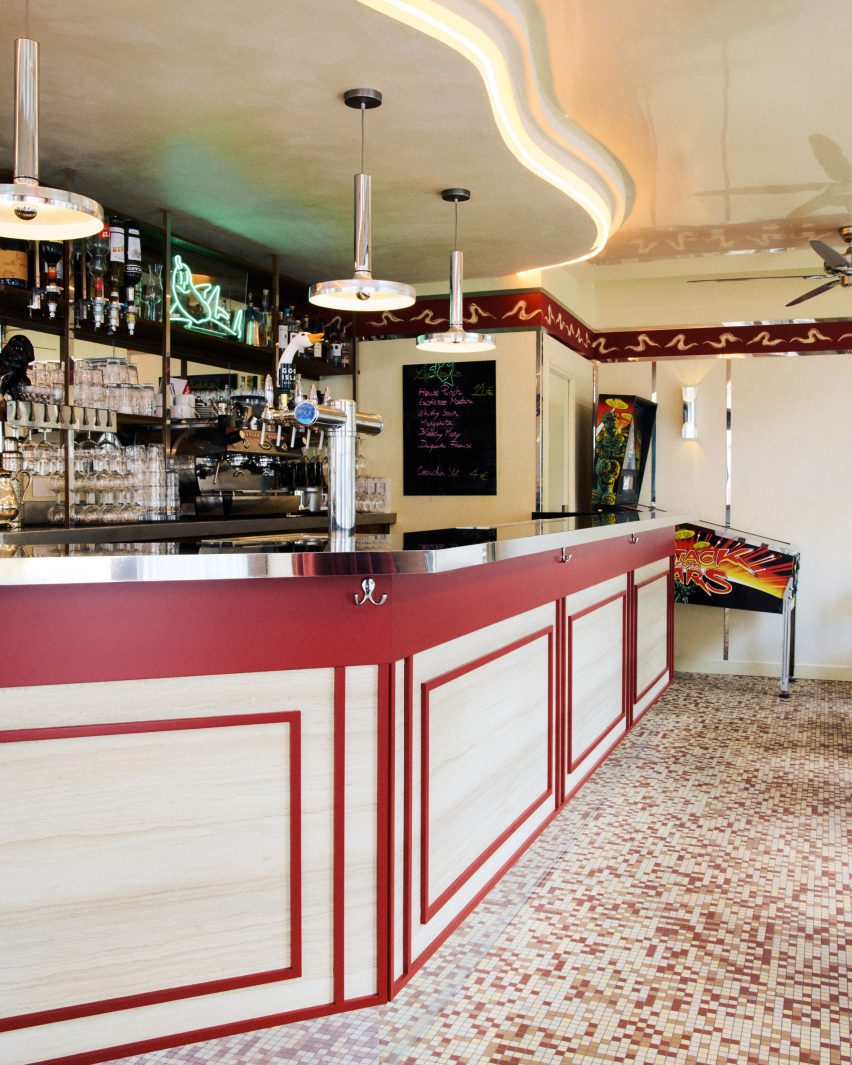
Le Cornichon is positioned on a corner site, its facade and architecture designed to be indistinguishable from that of a local Parisian bar or tobacconist.
"These are highly identifiable but timeless places, which don't refer to any particular period, or rather which cross the eras by adjusting as they go along", said Claves.
Touches of different period styles are reflected in the cafe's decor. Its interior was completely redone from floor to ceiling, and Claves also redesigned the bay windows and blinds for its facade.
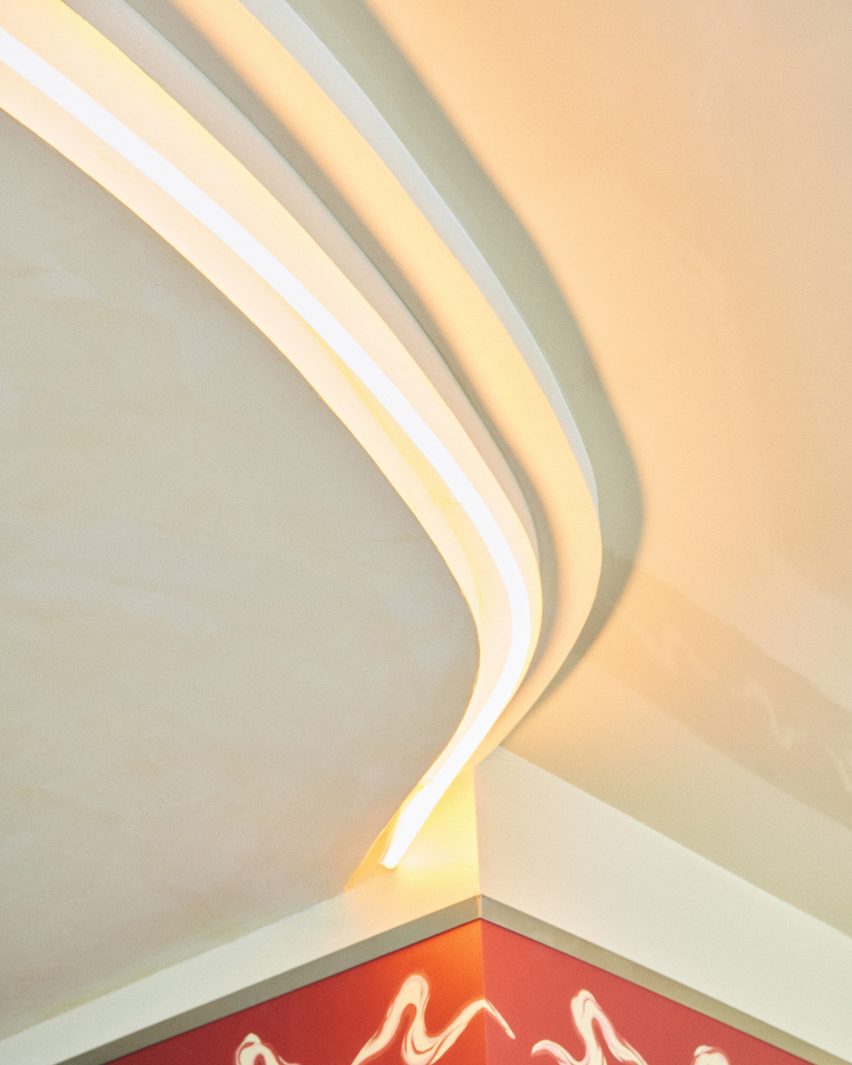
Claves designed the cafe's speckled mosaic flooring to reflect the typical architecture of the 1930s, while the creation of a glossy lacquered wave ceiling was a nod to 1950s Italy.
Textured plaster was applied to painted walls to create contrast and highlight the ceiling.
"We used the classic palette of Parisian bistros, including Bordeaux red, bottle green, cream and chrome details", said the design studio.
The counter and waiter station of the bar are covered in laminate travertine effect panels in matt red, with walnut effect worktops in gloss black.
Le Cornichon's bar was clad in laminate fittings reminiscent of Formica, a material invented at the beginning of the 20th century and used in many post-war bars and tobacconists.
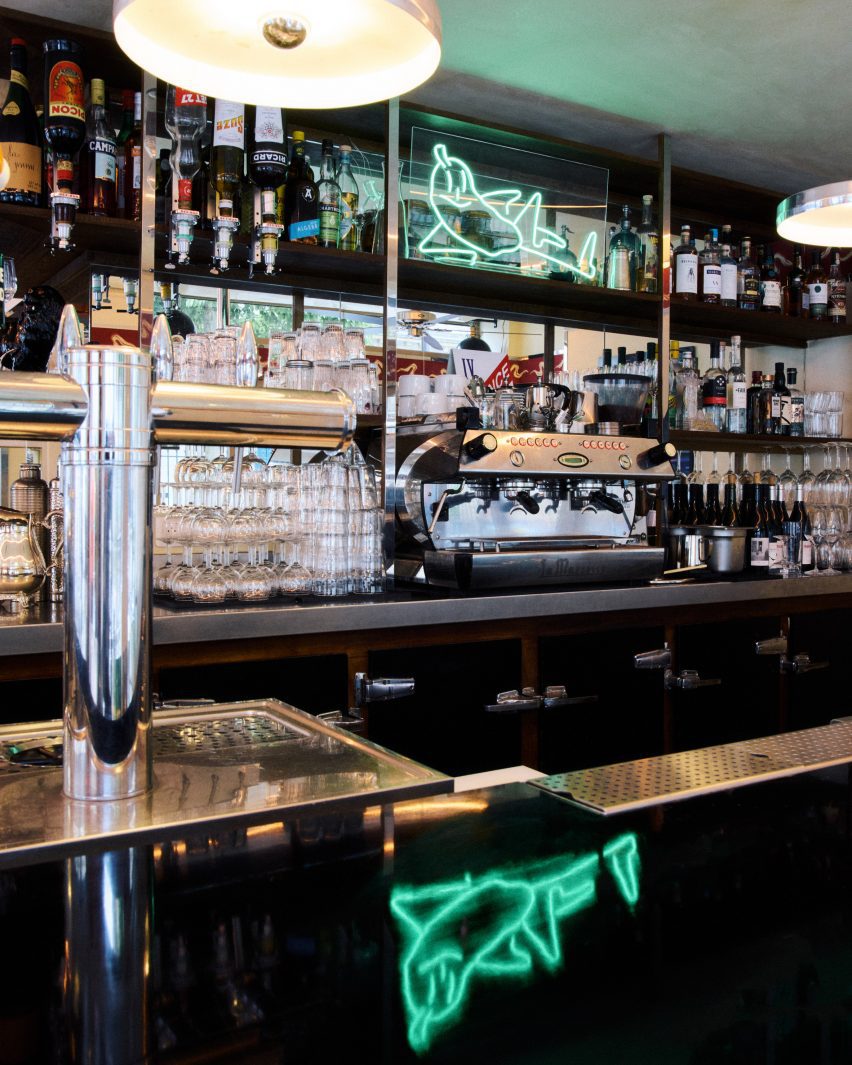
"We wanted customers to feel comfortable and at home very quickly, that there would be 'regulars'," said Claves. "That's why we've taken the codes that everyone knows and built a space that's rhythmic, harmonious and punctuated with amusing details."
1980s-style mirrors and chrome rod strips, inside and on the facade, add shine and give rhythm to the space. The studio also added neon-green lights to evoke the space-age design style of the 1960s and lend a party atmosphere to the cafe.
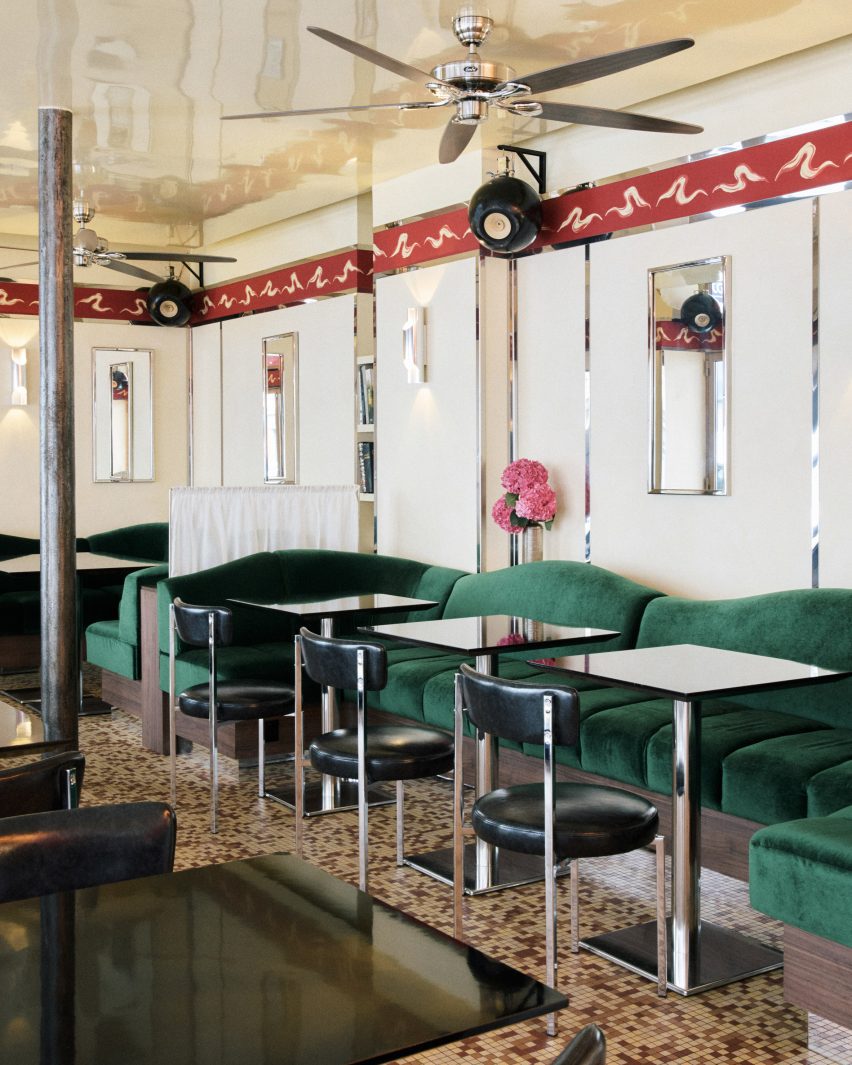
"We also wanted to create a very cinematic space, like in Cédric Klapisch's film Un air de famille," explained the design studio. "This is reflected in strong markers such as the painted 'smoke' frieze and the fresco in the toilets."
The decorative frieze, which evokes wisps of smoke, was created by decorative painter Mauro Ferreira.
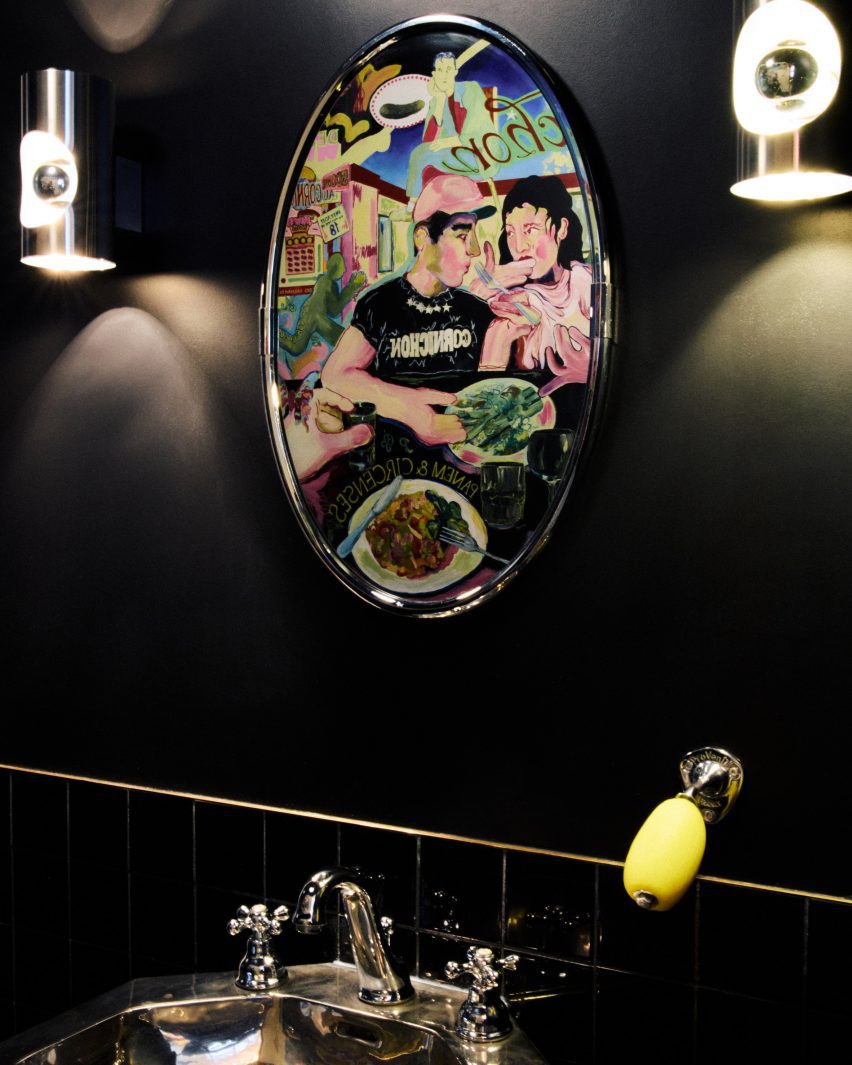
Accompanying laminate tables are green banquettes padded in thick velvet, which were custom-designed and produced by a Parisian workshop in the style of typical comfortable cafe bench seating.
Wave-shaped backrests echo the ceiling design and the wisps of smoke in the frieze. Chromed steel and black artificial-leather chairs were also custom-designed and made by another local workshop.
Numerous items were hunted down by the design studio to add a patina element to the interior, including the washbasin, mirror and bar lights.
"The pinball machine was hired from a vintage arcade game enthusiast and the postcard holder was bought from a specialist website," said Claves.
Before founding Claves in 2022, Gravier and Fougeront gained experience working together over several years for French interior designer Pierre Yovanovitch.
Other retro cafe, bar and restaurant interiors that have recently been featured in Dezeen include the Fika restaurant in Almaty, Kazakhstan, by NAAW Studio and the Sant Ambroeus Coffee Bar Aspen in Aspen, Colorado, by Giampiero Tagliaferri Studio.
The photography is by Matteo Verzini.